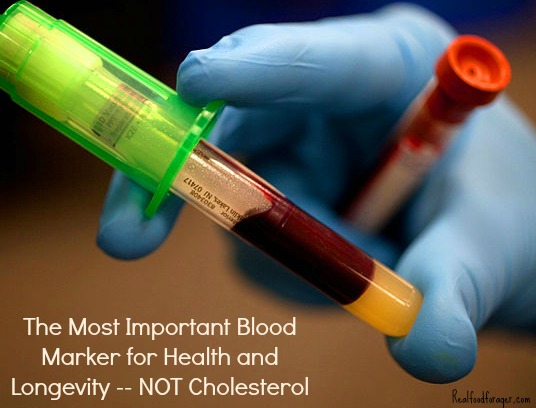It’s not cholesterol! This business about cholesterol is a scam on the American people of the highest order. I’m inclined to completely avoid having that cholesterol test at this point. The real problem comes from a diet saturated with processed foods and hidden sugars. However, it is very easy to monitor your true health with this simple blood test.
Cholesterol is NOT the Problem
There was no cholesterol problem until Big Pharma started rolling out cholesterol lowering drugs. It is now a multi-billion dollar business and there is no turning back. Adults with any small heart issue are automatically put on statins and now they are targeting young children.
Wrong, wrong, wrong.
This simply feeds the Big Pharma machine. Cholesterol is essential for brain function and brain development (children). The dramatic rise in neurological conditions is due, in my opinion, to this increase in use of statins and lowering cholesterol along with low fat, high carbohydrate diets .
Sugar Metabolism is the Key
Your doctor probably has already tested you for your fasting blood sugar. That test can tell you how you are metabolizing sugar at that particular moment. While it is important to see fasting blood sugar (critical is you are diabetic), it is also important to see how you are metabolizing and controlling blood sugar over a period of time.
Also known as Glycated hemoglobin; Glycosylated hemoglobin, HA1c, HbA1c, A1C, or Hb1c, Hemoglobin A1c is the test to use to check blood sugar regulation over a period of three months. It gives an average of your blood sugar over a 90 day period and is a better indication of your blood sugar control. According to Dr. Perlmutter in Grain Brain, HbA1c is,
… one of the greatest predictors of brain atrophy.
That information is very important indeed.
When blood glucose levels are high, glucose molecules attach to the hemoglobin in red blood cells. The longer hyperglycemia occurs in blood, the more glucose binds to hemoglobin in the red blood cells and the higher the glycated hemoglobin.
Once a hemoglobin molecule is glycated, it remains that way. A buildup of glycated hemoglobin within the red blood cell, reflects the average level of glucose to which the cell has been exposed during its life of 90 days. Measuring glycated hemoglobin is also used to monitor the effectiveness of therapy in diabetes by observing long-term serum glucose regulation.
Glycation
If you remember, glycation is the process whereby glucose, proteins and certain fats become tangled together. This causes tissues and cells to become stiff and inflexible — including those cells of the brain.
According to Dr. Perlmutter,
… sugar molecules, and brain proteins combine to create deadly new structures that contribute more than any other factor to the degeneration of the brain and its functioning. The brain is tremendously vulnerable to the glycating ravages of glucose, and this is made worse when powerful antigens like gluten accelerate the damage. In neurological terms, glycation can contribute to the shrinkage of critical brain tissue.(p. 85 Grain Brain).
What Causes Glycation?
According to Dr. Permutter,
Aside from sweetened beverages, grain-based foods are responsible for the bulk of carbohydrate calories in the American diet. Whether from pasta, cookies, cakes, bagels, or the seemingly healthful “whole-grain bread,” the carbohydrate load induced by our food choices ultimately doesn’t serve us well when trying to optimize brain health and function. When you add to this list the potpourri of other high carbohydrate foods like potatoes, corn, fruit, and rice, it’s no wonder that Americans are now rightly called “carboholics.” It’s also not surprising that we have an epidemic of metabolic dysfunction and diabetes in our culture. (p. 85 Grain Brain).
What Levels are Optimal?
As with any test, there are ranges of normal — and then there is optimal. Most conventional doctors only go by the established ranges of normal. Integrative doctors are generally more aware of what is actually optimal because they would rather proactively prevent a condition than wait for it to happen and then treat it.
Normal fasting blood glucose levels are generally within the range of 70 – 100 mg per deciliter (mg/dL). There may be some variation between different labs. Optimal would be 95 or under.
Normal HbA1c is 4.8 – 5.7 percent. Optimal would be 4.8 – 5.4 percent.
One Simple Test can Predict Your Future
This is a powerful take home message. It is actionable by everyone via food and exercise choices. The beauty of knowing how to interpret this simple blood test, is that you can do something about it if it is going too high. If your doctor does not routinely check your HbA1c levels, request it.
Increase Brain Power with Change in Diet
In our Standard American Diet, grains are emphasized and encouraged and fats discouraged. This has lead to the sorry state we are in now. Grains are quickly broken down into sugar and without fat to balance the effects, it leads to many imbalances in metabolism.
A change in diet is a proactive strategy to protecting many organs and tissues in the body and particularly the brain. As outlined above, there is cutting edge research that suggests that sugar drives inflammation and inflammation drives free radical damage, accelerated aging and loss of brain tissue. All these events lead to the epidemic we are seeing in cognitive decline, Alzheimer’s and dementia.
The Solution
A grain-free diet has been used to improve many conditions — including diabetes, digestive conditions, heart disease and dementia. You can be assured that there will be no gluten if you follow a grain free diet. For many, gluten free is just not enough to heal — they need to go beyond gluten free — they need to go grain free.
If you want to learn how to cook without grains and gluten check out my Go Grain-Free on-line class. Email me at Jill at Realfoodforager dot com for the current coupon.
Related articles:
Your Brain on Grains: Much Worse Than We Thought















